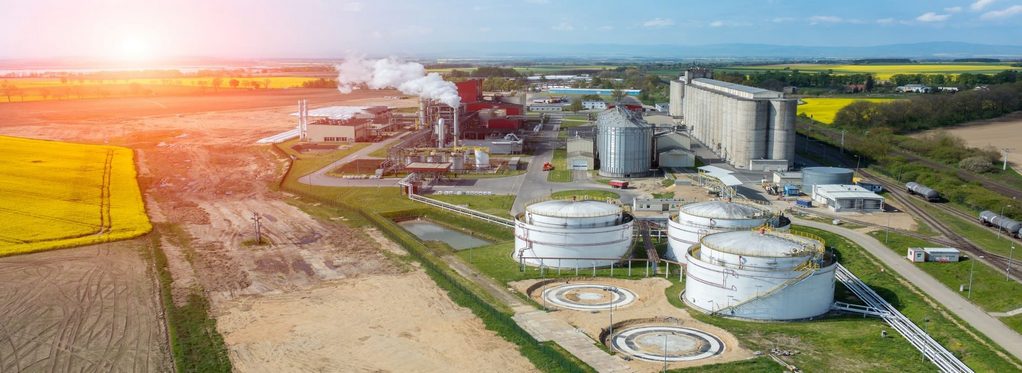Key bunker hubs such as Singapore and major shipping companies, particularly container lines, globally are embracing biofuel bunkers, with their popularity also reflected in the rising number of Veritas Petroleum Services-inspected marine biofuels samples.
Biofuels are being increasingly sought to reduce greenhouse gas emissions from marine fuels. The renewable content of marine fuel when bunkered is an important parameter as this is used to quantify the emissions reduction delivered by using this fuel, Managing Director for Asia, Middle East & Africa at VPS Rahul Choudhuri said.
Singapore, the world’s largest bunkering port, reported more bio-blended bunker fuel sales than LNG last year. Its bunker sales in 2022 included about 140,000 mt of biofuel blends for more than 90 biofuel bunkering operations, which surpassed 16,000 mt in LNG bunker sales.
In 2023, Singapore’s marine biofuel sales are expected to rise further, Choudhuri said, adding that three important developments in Singapore were providing biofuels the much-needed impetus.
Last year, the Singapore Shipping Association, under the auspices of the Marine Fuels Committee, released an FAQ on biofuel bunkers for ocean going vessels.
According to Choudhuri, one aspect of this project looked at neat biofuel being secured in China and sent to Singapore, where it was blended and supplied, with the focus on ascertaining the integrity of the supply chain, how secure it is, what the characteristics of the fuel are, what happens to the blend — whether it looks good, bad or stable.
The third development is the WA 2:2022 — a provisional national standard on specifications of marine biofuel — developed under the purview of the Chemical Standards Committee (CSC), under the Singapore Standards Council, said Choudhuri, who is also the Chairman of the CSC’s Technical Committee for Bunkering.
Singapore allows up to B50 biofuel blends under the WA 2 but the most used presently is B24, Choudhuri said.
A rule under MARPOL Annex II disallows suppliers from carrying biofuels as a cargo beyond 24% of the mix unless it has a chemical tanker notation.
Historically, ships were designed to burn vegetable oils. Shipowners can use them with little modifications to their engines and minimal changes to bunkering infrastructure. So, it is viable, Choudhuri said.
There is some concern about the availability of biofuels as “SAF [sustainable aviation fuel] may get the best of them,” he said.
Before the IMO 2020, there was a lot of anxiety about VLSFOs, what the new 0.5% marine fuels will be — will they be stable, compatible, and even amply available. However, the shipping industry has shown that it is resilient, and nobody is raising such concerns now, Choudhuri said, adding that they are very much a mainstream fuel now.
While there will be a green premium for biofuels, particularly for HVO, present rules such as CII and upcoming rules will make biofuels more cost competitive to conventional fossil fuels, Choudhuri said.
HVO currently costs about double the value of very low sulfur fuel oil — the most used marine fuel with 0.5% sulfur — while FAME prices are about 30%-50% higher than VLSFO depending on the blending proportion, according to industry sources.
Platts assessed MF 0.5% S Singapore FOB cargo at $527.46/mt on May 4 and MF 0.5% S Fujairah FOB cargo at $540.12/mt May 3, showed S&P Global data.
Some sources contended, however, that the IMO’s CII does not recognize the decarbonization effects of using biofuels. However, Choudhuri said that India had given a submission to the IMO ahead of the Marine Environment Protection Committee 80, recommending that biofuels should be given a zero-carbon factor.
Although the carbon factor for biofuel has not been clarified yet, it is going to come up in MEPC 80, Choudhuri said, adding that “this part of the discussion forms part of the lifecycle assessment.”
Tags: Biofuels, Marine Fuel, Rahul Choudhuri, VPS



Recent Posts
Port of Brisbane Unveils Vision 2060 to Drive Smarter, Cleaner, and More Connected Future
Wärtsilä to Deliver Hybrid Propulsion Systems for Vertom Group’s New Low-Emission Vessels
Latvian port receives electric Konecranes Gottwald Mobile Harbor Crane
Sustainable Ocean Economy Vital for Human Development, Says UNDP at UN Ocean Conference
Green Hydrogen Costs in India Could Drop by 40%, Says IEEFA-JMK Report
Cavotec Secures €1.55 Million Shore Power Contract for Port of Antwerp-Bruges
APM Terminals and SANY Marine sign landmark agreement to accelerate decarbonisation
The Port of Gothenburg takes big step towards shore power connection for container and car/RoRo vessels